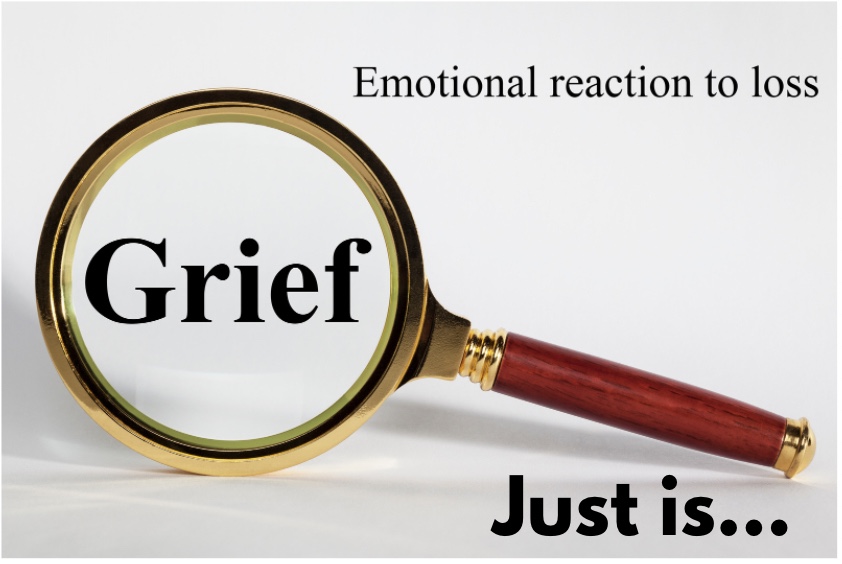
by Byron L. Clark
A thought or two about the grief I’m experiencing.
People will say, “I don’t know how you’re doing it,” right up until you can’t “do” something; then, most often, the expectation is that you should be able to do that thing.
I think many of you know that I have first experienced the loss of my daughter in a traumatic car crash in less than ten months. Three days after burying her, my father died. Then, in another tragic car accident, a cousin I was very close to growing up was taken away. Soon after that, I lost a close niece as she slept and then another cousin to gun violence the day she was laid to rest. Then finally, my son, who died on Valentine’s Day of this year, succumbed to the ravages of cancer. This period started with the loss of a child, claimed more of my family, and ended with the loss of a child. My sister is hospitalized with advanced-stage cancer that has spread throughout her entire body as I write this. Through it all, I have tried to “do,” most often because I have obligations to myself and others, but also to cope and survive.
Before going on, I want to clarify: I’m not writing this to solicit sympathy; God knows I’m getting enough of that, and it’s greatly appreciated.
I am not suffering from a lack of sympathy. I am suffering from an abundance of loss.
I’m sharing this because grief can be debilitating and very complex. I’m sharing this because others are grieving and if, by chance, they read this, I want them to know that they are “seen” and valued. I’m also writing this in a self-serving way as I am hopeful that there may be, for me, some benefit to my expression of grief, soon or sometime later.
Before all of the other deaths within these ten months, my son had already been diagnosed with terminal cancer. So in many ways, I felt as though I couldn’t grieve the other deaths that kept coming as I had to be mindful and take great care to make sure that he was OK. So, I made the tough decision to “table “my grief so that I could be mindful of a son already dying. My love for him postponed the grieving for all of the rest, and I am confident that all the others who had passed on before would approve as they had already been made whole.
All of this while being productive, showing up to work, and finishing the things I had committed to before his diagnosis. And while this may have served its immediate purpose well, it also gave the impression to myself and others that I could “do,” maybe even indefinitely. But I couldn’t, and I can’t. Still, I have to show up for myself and others. I do vow to do what I can.
There is a hole in my heart and an emptiness that I can’t explain or intellectualize, though I’ve tried very hard to do that. Sometimes I find it hard to breathe. At other times, I struggle to complete what would ordinarily be easy tasks. I cry at stoplights, and I deal with depression. Sometimes I can’t recall details, even names of close people, for a moment. I have trouble sleeping. I am experiencing extreme anxiety and episodic fear of what’s next. And, without question, none of this encompasses my darkest moments, the things that I am not yet ready to share in this space.
The grief just is. It exists as a significant part of my reality and lives outside of the demands placed on me. Grief cares little about timelines, deadlines, quotas, or productivity metrics. It can’t be packaged neatly or dressed to impress. It just is.
Grief does not bother with a schedule; it speaks all languages and does not discriminate.
I want to be careful to say that this post isn’t directed at any individual. Within my circle of family and friends, people have gone above and beyond to help me throughout this process. I write this to say that grief is incompatible with our society as it is structured. I write this to inform or remind, if needed, that any grieving person can honor their grief by understanding that the conflict they may feel with the demands, schedules, and obligations is to be expected. And where all of these things are real and often necessary, they need not take priority over grief and loss.
I am deeply mourning the loss of my children and family. There’s solace in knowing that, within my veins, is my inheritance; the blood of a people who have endured ~ I will too…
Grief just is. As best you can, allow it to be so…
Expressions of grief vary from person to person and how their loved one(s) have transitioned. Byron’s thoughts and feelings will resonate most people experiences. Sometimes, we don’t have the words to describe the many moods and feelings after the loss or losses of our loved ones.
Expressing of grief varies from person to person and how their loved ones have transitioned. Byron’s thoughts and feelings will resonate and put words to the grief that most people experience, but just don’t have the words to describe the many moods and feelings. Well written ❤️